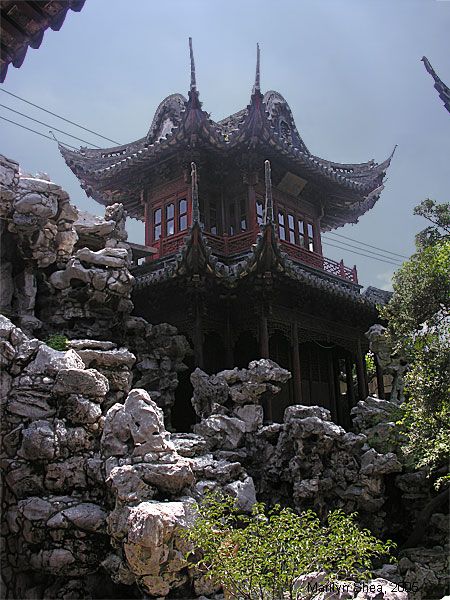 |
| The Hall of Harmony or Mildness (和煦堂 Héxù Táng) is a glass enclosed two story building that houses a display of banyan tree furniture. Héxù means warm and genial. It's warm in winter and cool in summer gaining a natural heat advantage from its rocky perch.
China from the early 1800s was in trouble. The economy was growing, people were getting rich, trade was expanding, and things were changing. At the same time, the division between the rich and poor was widening daily, the opium that was being brought in by the foreigners was eating into both the lives of the people and the economy. The landlords had a strangle hold on the peasants and local officials were so corrupt that any fairness in the taxation system was accidental. More and more "incidents", "protests", and "lawlessness" occurred and it was beyond the power of the government to do anything but put out the fires as they arose. The western and central provinces were particularly poor in comparison to the coastal regions and knew it. In the west there were problems with the Muslims and in the north with the Mongolians. The Qing Dynasty was losing power through dispersion and their own isolation. The distances between the central government and the provinces were measured in weeks of travel. The Manchus had combined a tribal organization with the Chinese dynastic system and tribal infighting was increasing. There were too many princes wrangling for a piece of the action and they had to compete with a new enormously rich merchant class. Each of the factions tried to control the emperor to their own ends. Much of the Chinese army was loyal to and controlled by a commander or prince rather than the emperor. Half of the government was Chinese but the real power lay with the Manchu officials. The Manchus could rule but not lead. There was little chance of a concerted central effort to effect the reforms needed, there would always be some powerful faction to defeat them in self-interest. With no strong central bureaucracy there was no central monetary policy. China was on the silver standard, but the availability of silver fluctuated wildly. The taxes that were collected often never made it to the treasury and the amount that did had to support a huge number of dependent princes, cousins, nephews, as well as their retainers. The best and the brightest among the Chinese now had options other than the Imperial Examinations for study and success. Studying the ancient texts for the exams did little to prepare the people who did attempt to pass them to face the complex sets of problems of the modern world. The foreigners were an irritation, but they paled in comparison to the internal problems absorbing the distracted attention of the emperors and their advisors. |
China Index >> History of Shanghai and Suzhou Region >> Yu Yuan
Click on a picture or use the arrows at the top to navigate through the site.
http://hua.umf.maine.edu/China/shanghai3.html
Last update: February 2007
© Marilyn Shea 1996, 1999, 2002, 2007